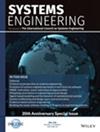小田原市交通的工程系统分析:新的交通服务对社区参与的影响
IF 1.6
3区 工程技术
Q4 ENGINEERING, INDUSTRIAL
引用次数: 0
摘要
日本的地方城市正在努力应对老龄化和人口减少的问题。老年人和带小孩的父母在使用公共交通时面临着独特的挑战,这是提高社区参与度和改善当地城市可持续性的关键。本研究调查了新交通方式和票价的引入对老年人和幼儿父母社区参与的影响。通过基于代理的模拟来评估整合流动性和公民功能的城市系统模型,以分析各种政策对社区参与和财务绩效的影响。该模型应用于小田原市,这是一个典型的日本近20万人口的地方城市。在本案例研究中,与目前的基线案例相比,两项政策——大力补贴社区巴士和部分补贴门对门面包车——预计将产生10%或更高的老年人参与度,而不会造成经济损失。更具体地说,当社区巴士的票价为100日元,门对门货车的票价为300日元时,老年人和带幼儿的父母的社区参与度预计将增加11%,人均净现值为正(25万日元)。然而,对老年人的政策和对父母的政策并没有协同效应。然而,支持老年人交通可达性的措施并没有损害父母的行为,而是支持他们的日常活动。结果表明,该方法可用于设计具有人口居住分布和现有交通网络的特定人群的新的交通政策。本文章由计算机程序翻译,如有差异,请以英文原文为准。
Engineering systems analysis of mobility in Odawara city: New transportation services impacts on community engagement
Abstract Local cities in Japan are struggling with aging and decreasing populations. Elderly people and parents with young children are uniquely challenged when accessing public transportation, a key to increasing their community engagement and improving local cities' sustainability. This research investigates the introduction of new transportation modes and fares on community engagement of both elderly people and parents of young children. An urban systems model which integrates mobility and civic functions is evaluated by agent‐based simulation to analyze various policies’ impacts on community engagement and financial performance. The model is applied to Odawara City, a typical local city of nearly 200,000 people in Japan. For this case study, two policies which strongly subsidize a community bus and partially subsidize a door‐to‐door van were predicted to generate 10% or greater engagement for the elderly without a financial loss compared to the current baseline case. More specifically, community engagement of elderly people and parents with young children are predicted to increase by 11% with positive (0.25 M yen) net present value per person when the fare of community buses is 100 yen and that of door‐to‐door vans is 300 yen. However, no synergistic effect driven by policies favoring elderly people and those favoring parents is found. Still, the measures to support elderly people's transportation accessibility do not harm the parents’ behavior but rather support their daily activities. The method is demonstrated to be useful for designing new mobility policy in light of a specific population with demographic residential distribution and existing transportation network.
求助全文
通过发布文献求助,成功后即可免费获取论文全文。
去求助
来源期刊

Systems Engineering
工程技术-工程:工业
CiteScore
5.10
自引率
20.00%
发文量
0
审稿时长
6 months
期刊介绍:
Systems Engineering is a discipline whose responsibility it is to create and operate technologically enabled systems that satisfy stakeholder needs throughout their life cycle. Systems engineers reduce ambiguity by clearly defining stakeholder needs and customer requirements, they focus creativity by developing a system’s architecture and design and they manage the system’s complexity over time. Considerations taken into account by systems engineers include, among others, quality, cost and schedule, risk and opportunity under uncertainty, manufacturing and realization, performance and safety during operations, training and support, as well as disposal and recycling at the end of life. The journal welcomes original submissions in the field of Systems Engineering as defined above, but also encourages contributions that take an even broader perspective including the design and operation of systems-of-systems, the application of Systems Engineering to enterprises and complex socio-technical systems, the identification, selection and development of systems engineers as well as the evolution of systems and systems-of-systems over their entire lifecycle.
Systems Engineering integrates all the disciplines and specialty groups into a coordinated team effort forming a structured development process that proceeds from concept to realization to operation. Increasingly important topics in Systems Engineering include the role of executable languages and models of systems, the concurrent use of physical and virtual prototyping, as well as the deployment of agile processes. Systems Engineering considers both the business and the technical needs of all stakeholders with the goal of providing a quality product that meets the user needs. Systems Engineering may be applied not only to products and services in the private sector but also to public infrastructures and socio-technical systems whose precise boundaries are often challenging to define.
 求助内容:
求助内容: 应助结果提醒方式:
应助结果提醒方式:


